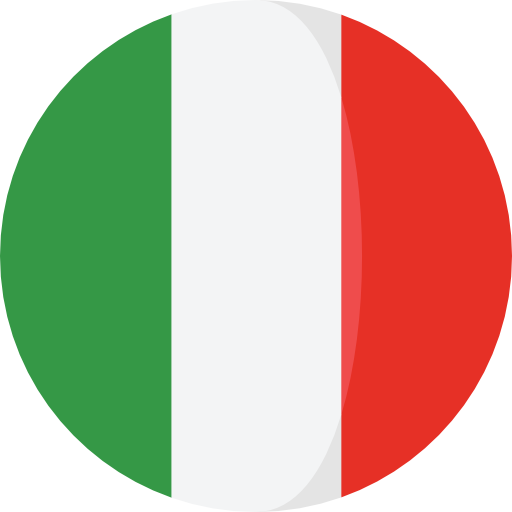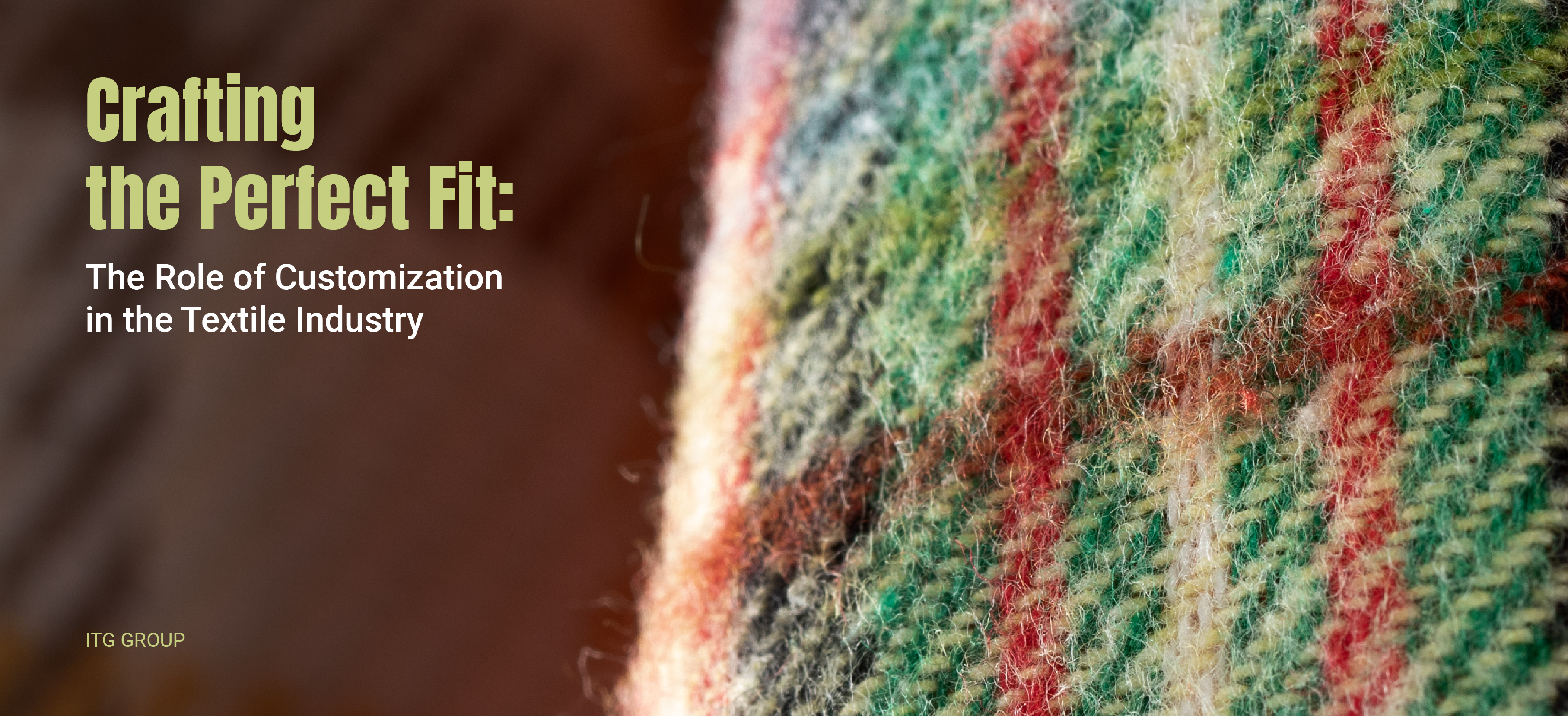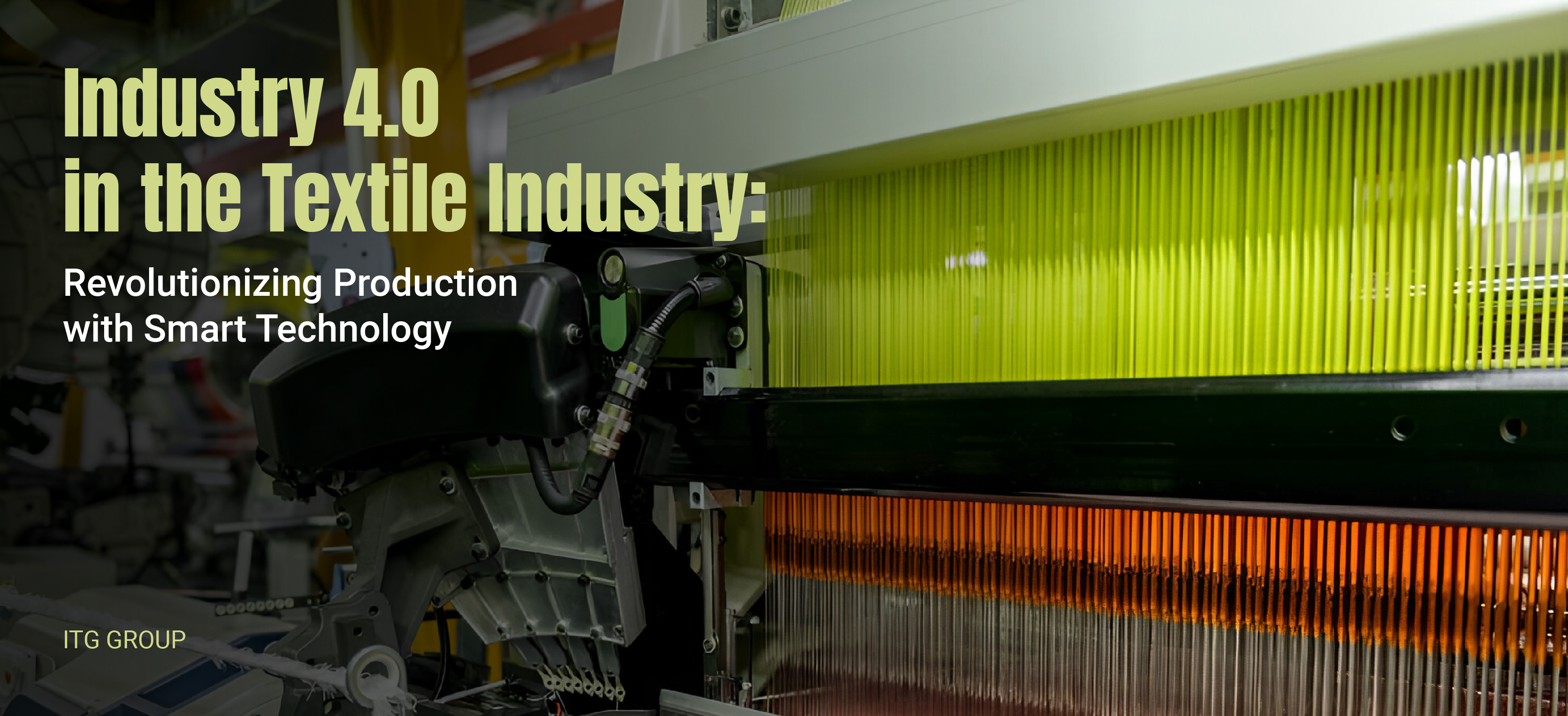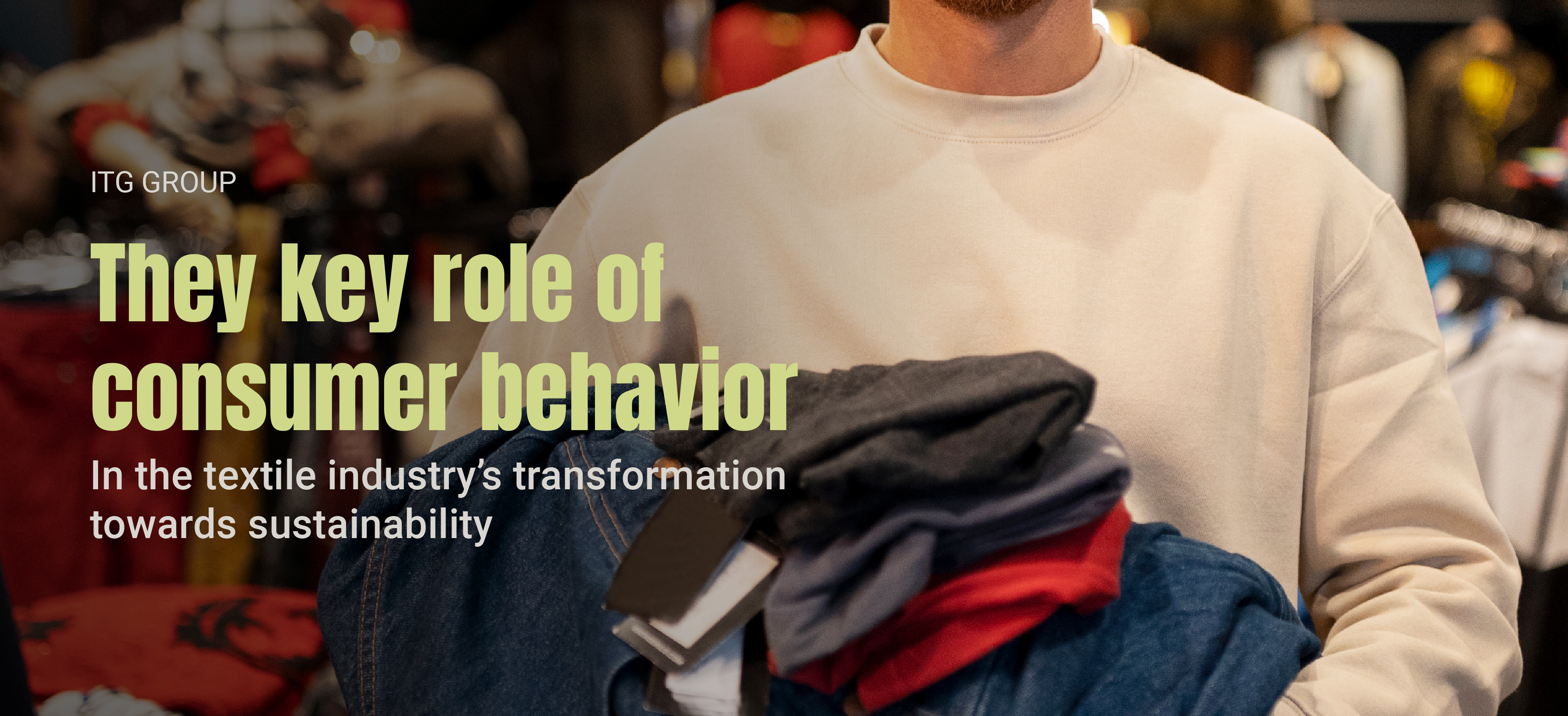- Industria tessile
- Jan 22, 2025
- 0
Crafting the Perfect Fit: The Role of Customization in the Textile Industry
Customization has become a vital element in the textile industry, allowing manufacturers to meet diverse client needs and stand out in a competitive market. The ability to adapt products to specific requirements—whether through design, functionality, or material composition—has reshaped the industry, enabling brands to deliver unique, high-quality solutions tailored to their customers.
Modern consumers value individuality, which drives the demand for customized products. In fashion, for example, brands can no longer rely solely on generic designs to satisfy their audiences. Instead, they use customized textiles with unique prints, colors, and finishes to deliver garments that align with current trends or specific customer preferences. This approach not only enhances customer satisfaction but also builds stronger brand loyalty.
Beyond fashion, industries like interior design and technical textiles also benefit from customization. Architects and interior designers rely on tailor-made fabrics for upholstery and curtains that meet their exact aesthetic and functional needs. Similarly, technical textiles, used in industries such as automotive, healthcare, and sports, often require specific properties like flame resistance, durability, or moisture-wicking capabilities that can only be achieved through customized production.
Advancements in technology have made textile customization more accessible and efficient. Digital printing, for instance, has revolutionized the way manufacturers produce patterns and designs, offering high precision, faster turnaround times, and the ability to create intricate details. Similarly, techniques like dye sublimation and laser cutting allow for greater flexibility in creating unique textures, colors, and finishes.
Customization is also evident in material selection. Manufacturers work with clients to choose fibers and fabrics that meet specific performance criteria, such as eco-friendliness, softness, or enhanced durability. With the rise of sustainability, many clients are opting for organic or recycled materials to align with their values, further emphasizing the importance of customization in meeting market trends.
In addition to enhancing product appeal, customization also improves the efficiency of production. Many textile manufacturers now use advanced software and machinery to cater to unique requests while maintaining scalability. For example, CAD (computer-aided design) programs allow clients to visualize custom patterns before production, reducing errors and ensuring that final products meet expectations.
This streamlining is essential for industries like retail, where brands need to release new collections quickly and adapt to changing consumer trends. Customization allows manufacturers to deliver tailored solutions without sacrificing speed or quality, making it a critical tool for staying competitive.
In a crowded marketplace, customization is one of the most effective ways for brands to differentiate themselves. Unique, tailored products help companies stand out, whether they’re creating limited-edition fashion pieces or specialized fabrics for niche markets. This differentiation not only attracts attention but also justifies premium pricing, as consumers are often willing to pay more for personalized, high-quality goods.
For businesses, offering customized textiles also strengthens client relationships. Collaborating with customers to develop fabrics tailored to their exact needs builds trust and loyalty, fostering long-term partnerships.
At ITG Group, we understand the critical role customization plays in today’s textile industry. That’s why we work closely with our suppliers to provide solutions that allow our customers to meet evolving market demands. Whether it’s connecting customers with high-quality suppliers or offering expert guidance to align with market trends., ITG Group is dedicated to supporting its customers’ success. We’re your commercial ally in the textile industry, committed to delivering solutions that drive growth and innovation.
- Industria tessile
- Dec 12, 2024
- 0
Industry 4.0 in the Textile Industry: Revolutionizing Production with Smart Technology
The textile industry is undergoing a digital transformation powered by smart technology, reshaping the way products are designed, manufactured, and distributed. This shift, often referred to as Textile 4.0, integrates advanced technologies such as artificial intelligence (AI), automation, Internet of Things (IoT), and digital twins, enabling unprecedented efficiency, sustainability, and innovation across the sector, which are revolutionizing textiles by streamlining operations, enhancing product quality, and improving supply chain management, marking the dawn of a new era in textile manufacturing.
Digital Twins: A Game-Changer in Manufacturing
One of the most impactful innovations in Textile 4.0 is the use of digital twins, which create virtual replicas of physical processes, machines, or entire production environments. These digital simulations allow manufacturers to test and optimize operations before implementing changes on the factory floor.
For example, textile firms can simulate different production settings to reduce errors, minimize waste, and optimize resource use. By predicting outcomes and troubleshooting in a digital environment, manufacturers can save time and reduce costs, making operations more efficient and eco-friendly.
AI and IoT: Smarter Processes, Better Outcomes
Artificial intelligence and IoT are transforming textile production by enhancing precision and automating complex tasks. AI-powered algorithms analyze data to optimize production schedules, improve quality control, and predict equipment maintenance needs. This ensures minimal downtime and maximized output.
The IoT takes automation a step further by connecting machines and sensors in real time. This connectivity allows factories to monitor production lines, detect inefficiencies, and adjust processes remotely. For instance, IoT sensors can measure fabric tension, color consistency, or machine temperature, ensuring consistent product quality while reducing waste.
Robotics and Automation in Textile Production
Automation is another key component of the Textile 4.0 revolution. Robotics is replacing repetitive and labor-intensive tasks, improving efficiency and reducing human error. From automated cutting machines to robotic arms for fabric handling, smart machines are helping manufacturers produce high-quality textiles at scale.
Additionally, automation supports sustainable practices by precisely using materials, thereby reducing excess waste and improving energy efficiency. This aligns with the growing demand for environmentally friendly production methods in the textile industry.
Big Data for Smarter Decisions
The ability to collect and analyze massive amounts of data is driving smarter decision-making in the textile sector. Manufacturers can now track consumer preferences, monitor production metrics, and evaluate supply chain efficiency in real time.
For example, data analytics can predict market demand, enabling companies to adjust production levels accordingly and avoid overproduction. This not only optimizes resources but also helps companies meet customer expectations more effectively.
Enhanced Customization and Design
Smart technology also enables greater customization in textile design. Tools like 3D printing and AI-driven design software allow brands to create personalized products tailored to specific customer preferences. This level of customization boosts customer satisfaction and strengthens brand loyalty.
Additionally, technologies such as augmented reality (AR) are being used to create virtual fitting rooms, enhancing the customer experience by enabling shoppers to visualize garments before purchase.
Sustainability and the Future of Textile 4.0
Sustainability is at the core of the Textile 4.0 revolution. Smart technologies enable resource optimization, reduce waste, and lower carbon footprints.
As the industry continues to adopt smart solutions, it’s clear that Textile 4.0 is not only driving operational excellence but also paving the way for a more sustainable and innovative future.
ITG Group: Embracing Innovation
At ITG Group, we are committed to understanding and leveraging the latest advancements in Textile 4.0. By staying informed about smart technologies and their applications, we provide our customers with insightful guidance to keep their businesses efficient, innovative, and aligned with industry standards.
We’re your commercial ally in the textile industry, working together to shape the future of textiles.
- Innovazione
- Dec 12, 2024
- 0
They key role of consumer behavior in the textile industry’s transformation towards sustainability
Consumer behavior is reshaping the fashion industry, pushing brands to rethink their production processes and embrace more sustainable practices. The growing awareness of the environmental and social impact of fashion has empowered individuals to demand change. This shift in consumer expectations is driving brands to prioritize ethical and sustainable practices, highlighting the vital role of informed shoppers in transforming the industry.
Brands respond directly to consumer demand, and today’s shoppers are increasingly prioritizing sustainability. They want to know where their clothes come from, how they’re made, and the impact they have on the planet. This shift forces brands to reconsider their practices, as consumer preferences drive sales and brand loyalty.
For example, many brands now incorporate sustainable materials, reduce waste, and improve transparency throughout their supply chains. Initiatives like using organic cotton, recycled fibers, and biodegradable packaging have grown significantly, thanks to consumer pressure. Furthermore, resale platforms, repair services, and circular fashion models are gaining traction as brands align their practices with the growing demand for sustainability.
Social media has amplified this influence. Consumers use platforms to call out brands for unethical practices, celebrate those prioritizing sustainability, and share information on the impact of fast fashion. This online advocacy has made it impossible for companies to ignore the power of consumer voices.
The Importance of Consumer Awareness
Educating consumers about the social and environmental impact of fashion is key to changing purchasing habits. Many people are unaware of the scale of waste, pollution, and exploitation caused by fast fashion. For instance:
- The fashion industry contributes to 10% of global carbon emissions.
- Synthetic fabrics shed microplastics into waterways, harming marine ecosystems.
- Textile waste fills landfills, with less than 1% of clothing globally being recycled into new garments.
Once consumers understand these issues, they are more likely to make informed choices, such as buying fewer but higher-quality items, supporting ethical brands, or participating in clothing resale and recycling programs. This growing awareness encourages brands to adopt sustainable practices to meet shifting demands.
The concept of “demand shapes supply” underscores how consumer choices influence production trends. When consumers prioritize sustainable options, brands are compelled to innovate. Whether it’s creating eco-friendly product lines, investing in renewable energy for factories, or adopting circular fashion models, the industry evolves to match consumer expectations.
Furthermore, this shift isn’t limited to high-end brands. Affordable fashion retailers are also investing in sustainability, recognizing the long-term business benefits of aligning with consumer values. Sustainable practices not only build brand loyalty but also reduce costs by improving resource efficiency and minimizing waste.
Individual actions, such as purchasing ethically or recycling clothing, are powerful, but collective efforts amplify their impact. As more people demand change, companies that fail to adapt risk losing market share. This ripple effect extends beyond brands to governments, encouraging regulations that support sustainable practices in the textile industry.
However, challenges remain. Issues like greenwashing, where brands falsely claim sustainability, and the higher cost of eco-friendly products can confuse or discourage consumers. Continued education and transparency are essential to ensuring lasting change.
The growing demand for sustainable fashion is a testament to the power of informed consumers. By influencing the way brands produce their products, consumers are not only reshaping the fashion industry but also driving the textile sector to adopt more ethical and eco-conscious practices.
At ITG Group, we recognize the importance of this shift and remain committed to staying informed about industry advancements and supporting our customers with expert guidance and working towards offering more sustainable solutions soon. We’re your commercial ally in the textile industry, helping businesses thrive while encouraging a more sustainable future.
- Innovazione
- Dec 12, 2024
- 0
Revolutionizing textiles: How AI is shaping the future of fabric production.
Artificial Intelligence (AI) has become a driving force of transformation in the textile industry, unlocking efficiencies and advancing sustainability initiatives. As demand grows for faster production, enhanced customization, and eco-friendly practices, AI provides the tools to meet these evolving industry needs. From trend forecasting and quality control to predictive maintenance and sustainable practices, AI applications are reshaping the way textiles are produced and consumed, allowing companies to enhance quality while reducing waste and operational costs.
These advancements have introduced various applications that directly impact how textiles are designed, produced, and managed. By integrating AI, textile companies can improve decision-making processes and achieve a high degree of accuracy in demand forecasting, inventory management, and customer experience personalization. This shift not only boosts efficiency but also aligns with sustainable practices, giving textile businesses the ability to produce more responsibly and minimize their ecological footprint.
1. Product Design and Trend Forecasting
AI tools can predict upcoming trends by analyzing vast datasets on consumer preferences and market shifts, enabling designers to stay ahead of consumer demand. This application allows companies to deliver styles that align more closely with market needs, which is critical in the fast-moving fashion industry.
2. Quality Control and Defect Detection
Using AI-driven visual recognition systems, textile companies can detect fabric defects more quickly and accurately than human inspectors, reducing waste and ensuring quality control. These systems analyze patterns in real time, identifying defects early in the production process to maintain high-quality standards.
3. Inventory Management and Demand Forecasting
AI’s predictive capabilities enhance inventory management by optimizing stock levels and reducing the risk of overproduction. Real-time data analysis allows textile businesses to respond to seasonal changes and demand fluctuations, which ultimately minimizes waste and streamlines operations.
4. Predictive Maintenance of Machinery
AI-powered predictive maintenance uses sensors to monitor machinery in real-time, identifying potential issues before they lead to costly breakdowns. This capability keeps equipment running smoothly, maximizing productivity while reducing downtime.
5. Customization and Personalization
Through AI data analysis, textile companies can offer mass customization options, tailoring products to individual preferences. This capability is essential in today’s market, where personalized experiences drive customer loyalty.
6. Sustainability Initiatives
AI supports sustainable practices in textiles by tracking resource usage, optimizing cutting patterns, and recommending eco-friendly materials. This helps companies minimize their environmental footprint and improve their sustainability efforts.
At ITG Group, we are committed to keeping our team up-to-date with these cutting-edge advancements. By continuously enhancing our expertise, we provide our clients with the best guidance, helping them stay competitive and implement best practices. This dedication reinforces ITG Group’s role as a trusted commercial ally in the textile industry, ensuring our customers are efficient and aligned with industry standards. Weaving Success Together, we are here to support our clients every step of the way.

 Italiano
Italiano
 Inglese
Inglese




